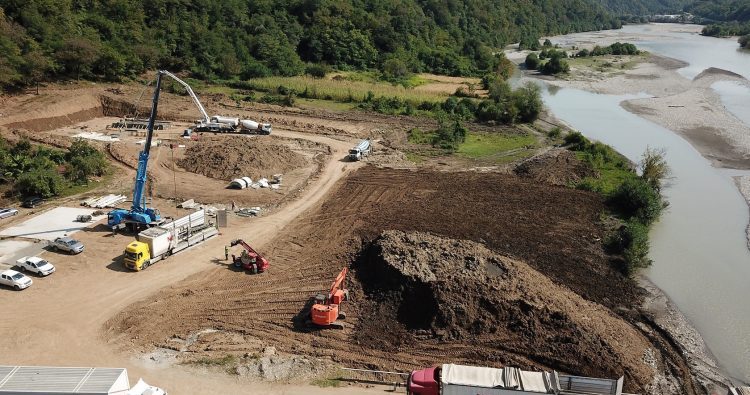Construction of Namakhvani dam suspended for 12 months

The Namakhvani HPP project entails the construction of a hydroelectric power plant on the Rioni river in Georgia’s Tskaltubo and Tsageri municipalities. Photo: Ipress.
Georgian Economy Minister Natia Turnava has announced that the construction of the Namakhvani HPP in western Georgia, in particular the dam, will be suspended for the next 12 months.
We are acting within the law and in accordance with priorities...What we have achieved is that the dam will not be built in the next 12 months, i.e. a moratorium on the construction of the dam has been announced", said Turnava.
She said that major studies will be re-verified and validated.
This mediation process will be held between the non-governmental sector and the government about the environmental impact assessment, and how the future study will be conducted. This will build trust in the project. The chairman of the EU energy union disputes council is involved in the mediation process", she said.
Turnava added that a visit of government members to the Rioni gorge is not planned at this stage, however, 'the door is always open' for negotiations.
The Namakhvani HPP project entails the construction of a hydroelectric power plant on the Rioni river in Georgia’s Tskaltubo and Tsageri municipalities.
The project includes the construction of two plants – the Lower Namakhvani HPP (333 MW) and the Upper Namakhvani HPP (100 MW) – with a total capacity of 433 MW and average annual generation of 1.514 GWh.
The project is being carried out by the Turkish company Enka.
Locals protest the construction of the HPP in the seismic active region, claiming that the construction was launched without sufficient research and thorough consideration of risks, including immediate security risks due to the active seismic processes.
Further concerns include potentially devastating environmental impact for the regions affected, their unique biodiversity and cultural heritage, as well as microclimates that are crucial for producing Georgian wines.
 Tweet
Tweet  Share
Share